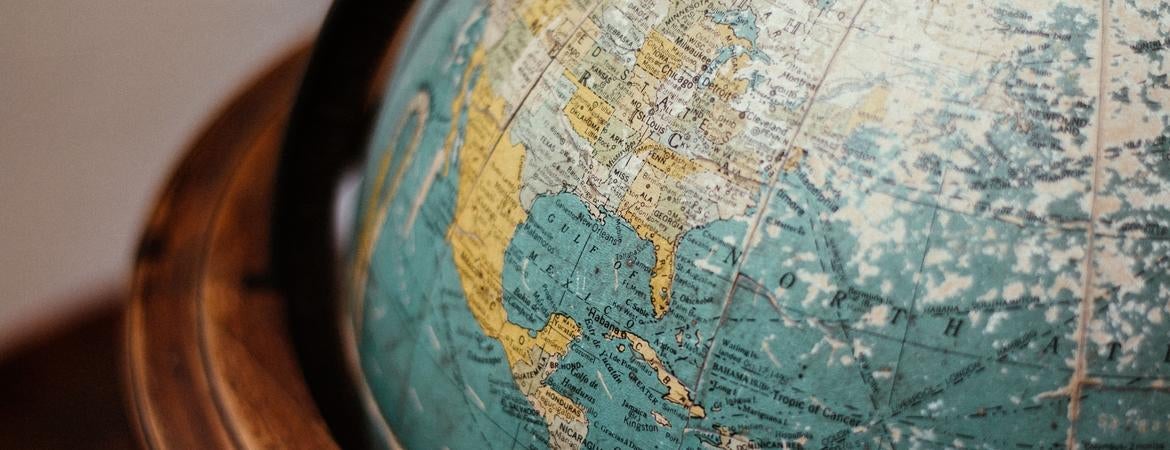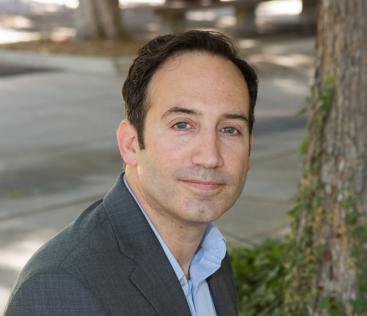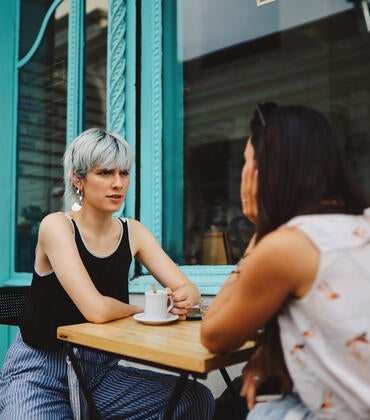
In his role as a medical sociologist, Richard M. Carpiano studies population health issues, analyzing how a variety of social factors influence both the physical and mental health of people around the world.
Carpiano is a professor of public policy and sociology at the University of California, Riverside. Most recently, his research has focused on vaccine hesitancy, or the reasons underlying whether parents might choose not to vaccinate their children or to delay vaccine coverage.
A pandemic like COVID-19 is especially interesting to sociologists because “it forces conversations by radically rearranging our social routines,” Carpiano said. Below, he shares some insights about how the coronavirus could have far-reaching impacts on our social structures and routines.
As a sociologist, can you give us a bird’s-eye view of how you approach a pandemic like COVID-19? What do you look at first? For me, an event like this is especially notable because of its ability to reveal limitations in social policy. As a society, we can plan for so many human elements, but then here’s a virus that comes along and shows all the weak links we have when it comes to things like family leave policy, unemployment policy, and public health policy.
What we often don’t discuss when we talk about health care in the U.S. is our public health system. This situation is really bringing forward how important having a well-funded, well-organized public health system is in this country at the county, state, and national levels, and how important it is to have coordination between agencies. It’s a sector that’s been underinvested in for a long time, especially at the federal level, but as we’re seeing, you really do get what you pay for.
In your research, you study how social conditions — and social inequities — influence health outcomes. How are you applying that lens to looking at the coronavirus? Well, a pandemic like this doesn’t hit everyone equally. Of course, with COVID-19 we see differences in risk based on age, and we can already see certain groups being more marginalized when it comes to being able to access resources such as testing and medical care. But in particular, this pandemic has highlighted the vulnerabilities of people in different types of occupations, many of whom belong to traditionally lower income brackets. It’s revealed how closely our benefits are tied to our work, what happens when that work goes away, and ultimately how many Americans are in precarious work situations.
What about health impacts we might see as a result of people being isolated and having to dramatically change their usual routines? There’s been talk that we might see a coronavirus birth cohort as people are spending more time quarantined at home — it’s certainly a time for intimacy, but a time for more conflict, too, as people are living on top of one another for long stretches. But we also might see a number of collateral health impacts from this pandemic, such as people being more sedentary, eating more out of boredom, and generally being less active. We might see alcohol consumption go up and substance abuse become more prevalent. I would imagine most people right now have less access to their doctors or are becoming less likely than usual to have their medications refilled. All of these things could lead to additional health consequences down the line.
Do you see any unexpected silver linings that could result from this situation? I’ve been trying very hard, as a coping mechanism, to think of some positive things that could come out of this, and one thing I think might be a silver lining is that this event has really highlighted the importance of state government. People have a lot of criticisms about how the federal government has been handling this situation, and many of those are legitimate, but we’re also seeing state officials really rise to the challenge and demonstrate leadership at a time when trust in government isn’t exactly the highest. It’s been an opportunity for a new wave of political leaders to step forward — people showing that it’s not just about politics or partisanship, but really about being a public servant.
The reality is there are very few people who are anti-government in times of crisis. People look to government for direction on what to do. As a result of this, I think we might see more trust in state government, in particular.
Are there any historical events you view as similarly disruptive to society or are looking to in comparison? It might be because I was in New York when 9/11 happened, but that’s what my mind goes to. That was another situation where the U.S. was taken off guard and had its governmental limitations exposed very suddenly — major limitations in operation, planning, and problem-solving. But in the wake of 9/11, we saw a real public push to figure out how this happened and how we could prevent it from happening ever again. We saw the formation of the 9/11 Commission and a lot of other significant changes made in the realms of foreign policy and national security. I’m hoping a similar trend might take hold after this, but in relation to public health and promoting new conversations about what we can do to prevent something similar from happening again by strengthening our public health system.
You also study vaccine hesitancy, or the reasoning behind why some parents might not choose to have their children vaccinated. Do you think this situation could have any bearing on changing public perception of vaccines to help skeptics view them more favorably? Vaccines are not a bread-and-butter issue for the average American; most people in this country support them. If anything, I think, this situation could help raise support for elected officials to enact stricter measures to ensure the population’s vaccination coverage is as high as it can be. But when we look at the very small minority of vocal, dyed-in-the-wool groups who are anti-vaccines and actively lobby against them, I’m unfortunately not very optimistic that this event will change their minds much. We’re already seeing a lot of conspiracy theorizing surrounding this situation from them, and they tend to equate vaccine requirements with “government overreach” no matter what. But one thing I think we might see is their usual tactics not working as well when it comes to getting the ears of elected officials.
Header image by Adolfo Félix via Unsplash




